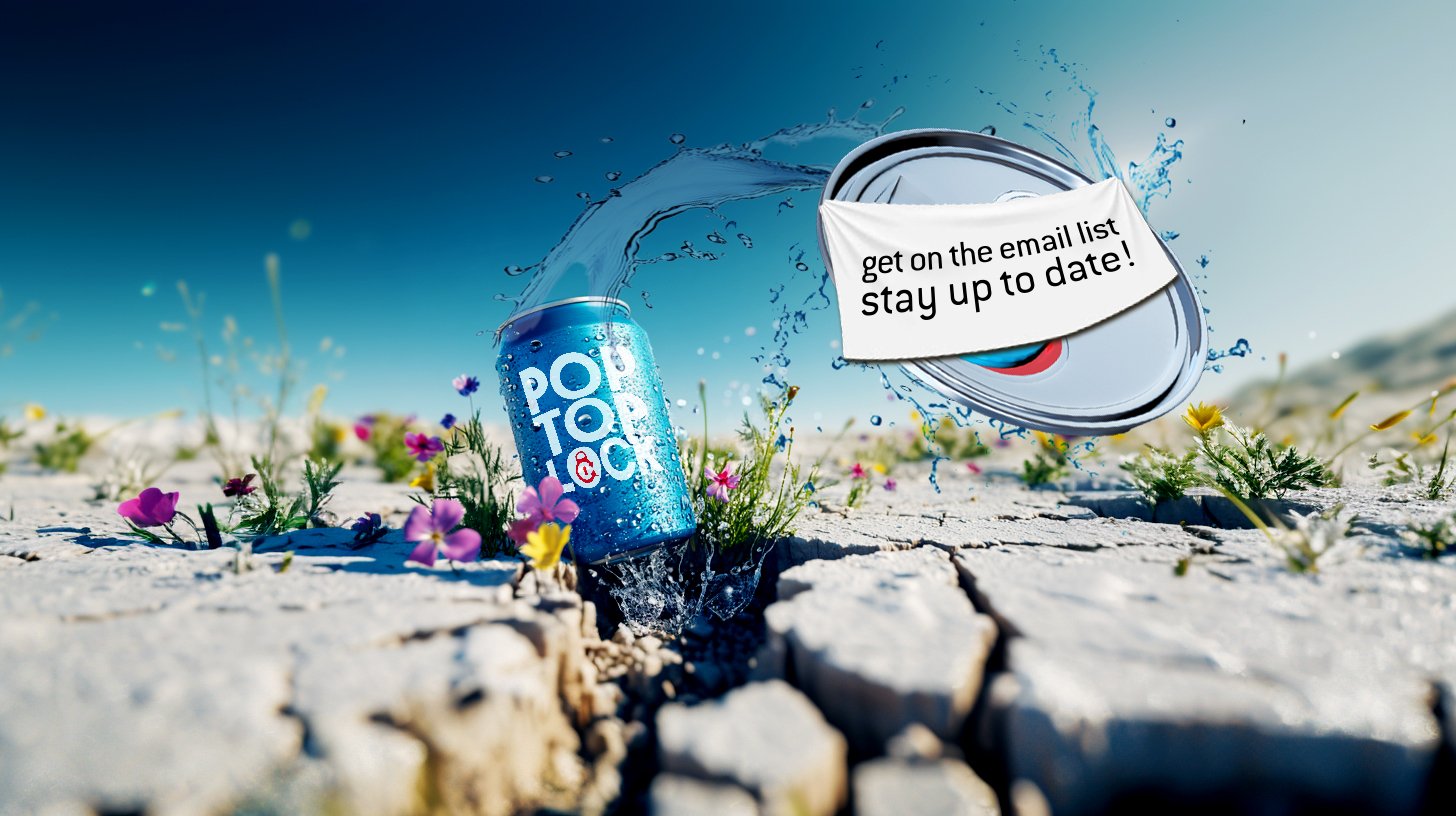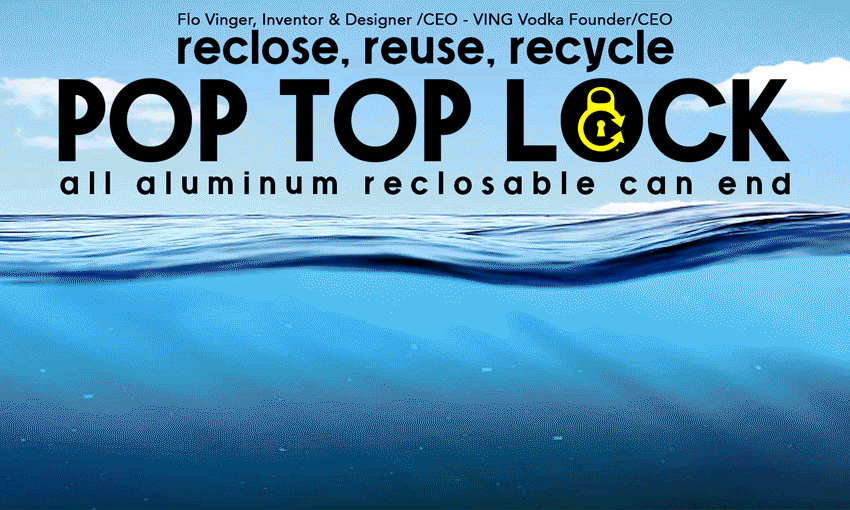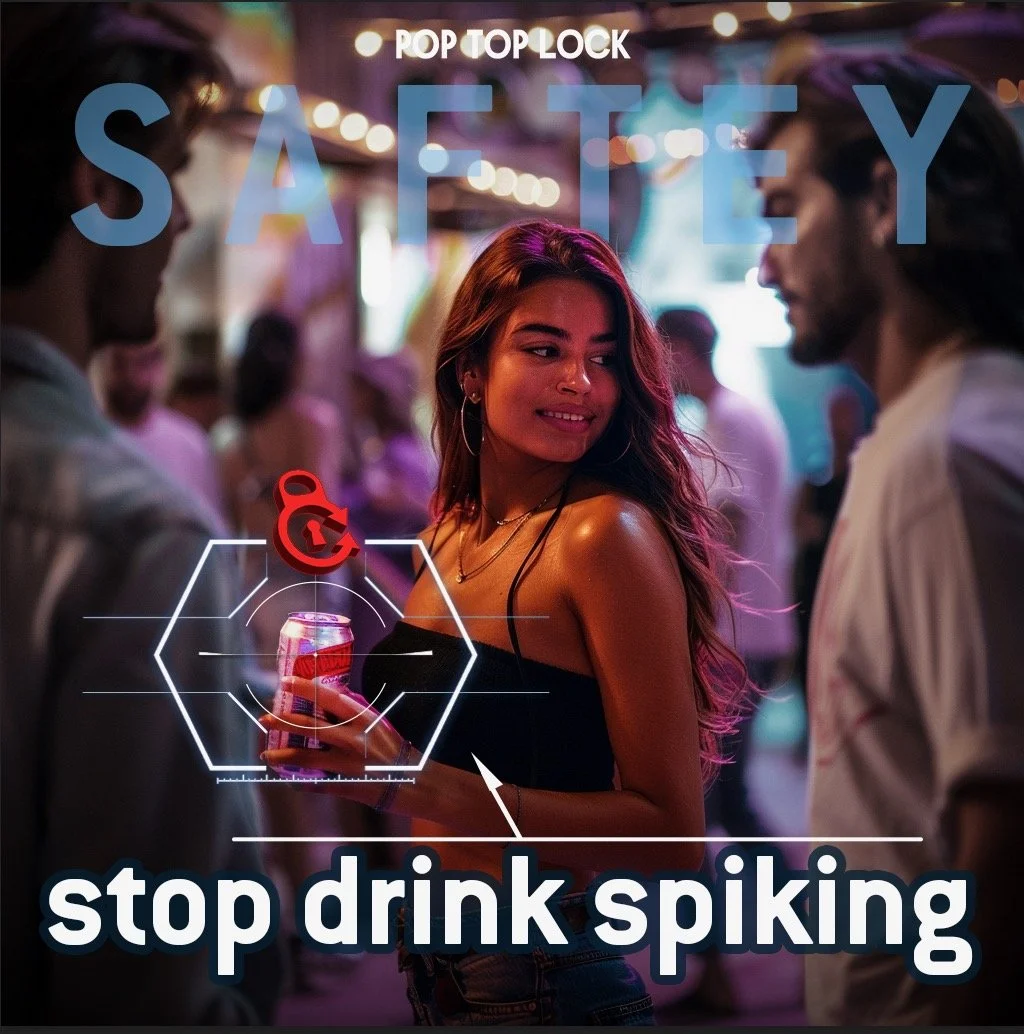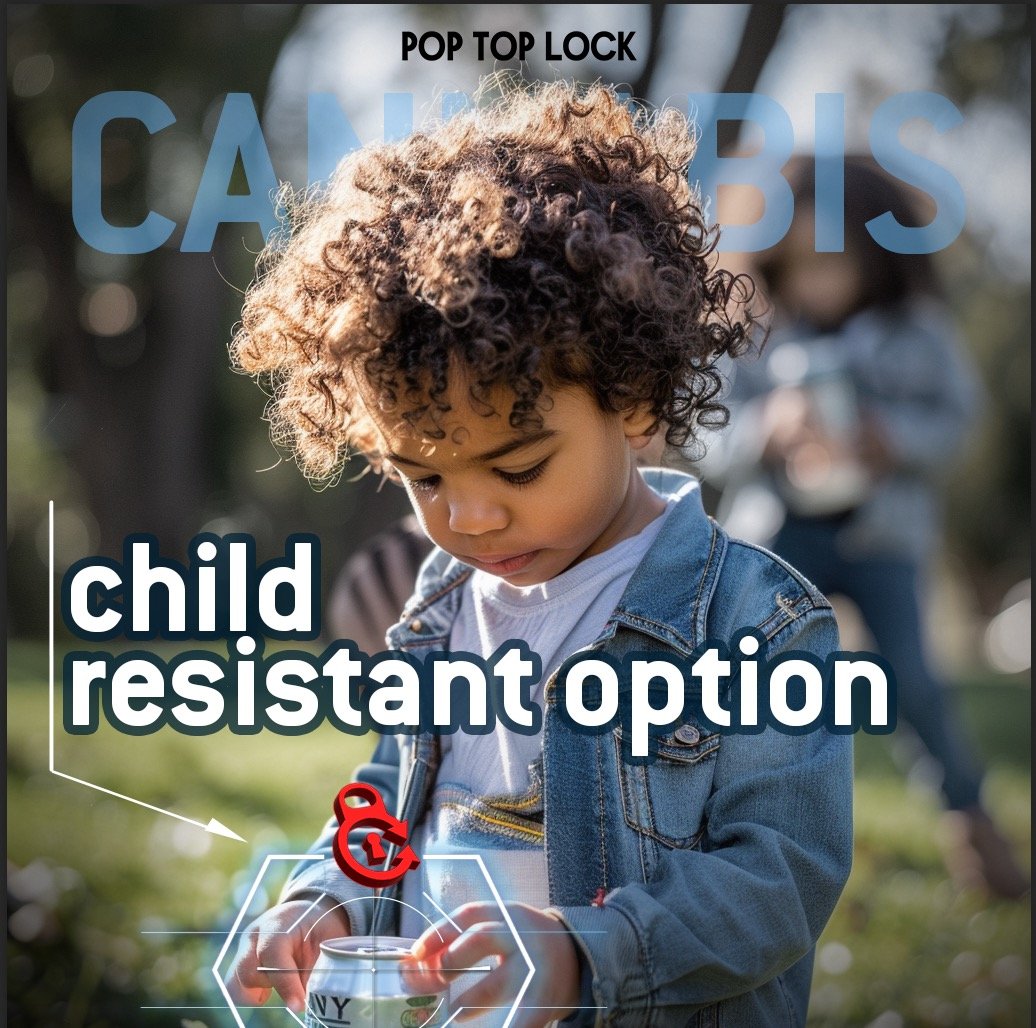
reseal, reuse, recycle
the world’s smartest
can end
Pop Top Lock’s resealable and reusable can end is a sustainable packaging technology that solves the single-use plastic epidemic while improving consumer safety, reducing landfill waste and microplastics, helping to combat global warming, ocean acidification, and pollution to protect and restore the ecosystem for a healthier planet where future generations will thrive.
Pop Top Lock was awarded one of the top 51 top Biotech companies in 2025 by F6S.
Ranked #46 out of 2 million F6S startups.

it’s up to us to keep our ocean’s clean for the next generation
stop plastic use
Learn more about microplastic that fish eat… then we eat.
Pop Top Lock
Global Impact
2027-2033 projection, growing 1% of market share per year (2033 @ 7%). Total Analysis:
PLASTIC BOTTLE REDUCTION 2027-2033:
~8.12 million metric tons (MT)
CARBON (C02) EMISSION REDUCTION 2027-2033:
(plastic, glass, transportation, aluminum reuse 1x minimum)
~686 million metric tons (MMt)
ENERGY SAVINGS 2027-2033:
~1,163 terawatt-hours (TWh)
Plastic Reduction: Calculated by replacing 7% of global plastic bottles with Pop Top Lock. CO₂ Emissions Reduction: Calculated by; 1) 7% decreased need for plastic production — emissions ~3 times higher than recycling aluminum, 2) transportation emissions reduced from lighter aluminum compared to heavy glass (30% less), and 3) plastic recycling processes is ~10% more emissions than recycling aluminum. Energy Savings: Calculated by 1) the ~95% less energy it takes to recycle aluminum than mine raw bauxite, 2) 4-5 times more energy needed for plastic production and recycling than recycling aluminum, and 2) the 30% less energy for transporting heavy glass.
Deep dive on reusing Pop Top Lock
Reusing 5% | Ocean Plastic Reduction:
Reduces plastic waste entering the ocean by an estimated 150,000 tons annually.
This reduction helps prevent the degradation of marine ecosystems and protects marine life, including endangered species affected by plastic pollution.
Our goal is to secure 6% of the global aluminum can market by 2030, replacing 30 billion plastic lids and preventing at least 2,500 metric tons of microplastics from entering the environment.
Studies show that one plastic bottle cap, when broken down, releases between 3,000 to 5,000 microplastic particles, contributing 0.08 grams of microplastics per cap. By eliminating 30 billion plastic lids, we prevent an estimated 2.4 trillion microplastic particles from contaminating oceans, soil, and drinking water—reducing the long-term accumulation of persistent plastic pollutants in marine ecosystems and the human food chain.
Reusing 5% | CO2 Emissions:
Global transport is reduced by 4.8 million tons annually.
This is equivalent to removing 930,000 cars from the road and also contributes to reducing the carbon footprint of ocean-going vessels.
1.33 million tons of CO2 emissions avoided annually, which is equivalent to removing 290,000 cars from the road for a year.
This reduction helps mitigate climate change, which in turn slows the warming and acidification of the oceans.
Reusing 5% | Energy Savings:
3.89 billion kWh of energy saved annually.
Enough energy to power 380,000 U.S. homes for a year, decreasing the need for fossil fuels and contributing to cleaner energy production, indirectly helping ocean health by reducing air pollution and climate change impacts.
1.17 billion kWh of energy saved annually from aluminum mining and recycling, equivalent to powering 105,000 U.S. homes for a year.
Reusing 5% | Beverage Waste Reduction:
Billions of liters of beverage waste saved annually.
This reduction in waste helps decrease the amount of single-use plastic containers and cans that end up in the ocean, preventing them from breaking down into harmful microplastics.
Plastic bottles are a major contributor to microplastic pollution, with over 1 million plastic bottles purchased every minute globally, and less than 10% are effectively recycled. The rest end up in landfills, incinerators, or oceans, where they degrade into millions of microplastic fragments per bottle. By offering a fully recyclable, resealable aluminum alternative, Pop Top Lock directly reduces reliance on single-use plastic bottles.
Unlike plastic, aluminum is infinitely recyclable, with nearly 75% of all aluminum ever produced still in use today. A transition from plastic bottles to reusable and endlessly recyclable aluminum cans could eliminate millions of tons of plastic waste annually and drastically cut the estimated 1.5 million tons of microplastics that enter the ocean each year.
Reusing 5% | Aluminum Raw Mining:
277,500 tons of aluminum saved annually by reducing raw bauxite mining.
This prevents further environmental degradation, preserving pristine landscapes and reducing pollution that could make its way into the ocean through runoff.
Energy savings of 1.17 billion kWh annually, equivalent to powering 105,000 U.S. homes for a year, reducing the need for energy-intensive operations that contribute to ocean acidification.
Reusing 5% | Trash Collection Savings:
$15 million in collection and disposal costs saved annually.
With reduced waste being sent to landfills or incinerators, less plastic will escape into the ocean.
Communities and businesses can reinvest savings into local environmental projects that help preserve ocean ecosystems.
Recycling Aluminum Savings:
492 billion kWh of energy saved annually by recycling aluminum.
Equivalent to powering 2.2 million U.S. homes for a year, reducing the need for resource extraction, which helps reduce ocean pollution.
CO2 emissions avoided: 4.3 million tons annually, equivalent to removing 930,000 cars from the road.
Landfill waste reduced: 277,500 tons/year, preventing more plastic and aluminum from reaching landfills and ultimately the ocean.
This is equivalent to preventing the release of 6.9 million tons of CO2 equivalent emissions, protecting marine life from harmful pollution and reducing plastic waste in our oceans.

UN SDG alignment
(United Nations 17 Sustainable Development Goals)
Pop Top Lock supports a circular economy by eliminating plastic components, reducing single-use waste, and ensuring a fully recyclable packaging solution.
Pop Top Lock helps brands lower their carbon footprint by reducing plastic use and promoting sustainable packaging alternatives.
Pop Top Lock enhances consumer safety with a tamper-evident, child-resistant design, reducing risks of accidental ingestion, particularly in the cannabis industry.
Pop Top Lock prevents plastic waste from entering oceans by replacing plastic lids and caps with an all-aluminum solution, supporting marine ecosystem protection.
Pop Top Lock advances packaging technology with a resealable, all-aluminum can end, improving functionality while maintaining recyclability.

ALUMINUM FOR OUR FUTURE
POP TOP LOCK
The Future of Sustainable Beverage Packaging

The ocean will thank us!
We are eating plastic…
POP TOP LOCK DETAILS
Pop Top Lock is an exciting new all aluminum resealable can technology that powers a sustainable future and drives innovation by saving billions of dollars in aluminum waste, lowering our carbon emissions, and creating a circular economy.
~627 billion aluminum beverage cans were sold globally in 2024, with a forecast of ~775 billion by 2030. Inventor and designer Flo Vinger founder and CEO of VING Vodka created Pop Top Lock to rid single-use plastic and single-use aluminum cans. Pop Top Lock is sustainable, reclosable, reusable, and 100% recyclable and the closure is attached.
Pop Top Lock opens like a traditional SOT (Stay-on-Tab) and helps keep carbonation after opening. Pop Top Lock attaches to a standard can body with a double-edge seam and is stackable.
There is also a child-resistant, tamper-evident, reclosable design that meets state and federal requirements for Cannabis beverages. Pop Top Lock design can expand into packaging for products like grains, sugar, detergent, flour, and cereal and larger sizes like 10Lt water containers.
Once launched, Pop Top Lock Founder and CEO Flo Vinger's grander vision goes beyond sales and dramatically reducing plastic use - she dreams of globally and indefinitely impacting unnecessary waste and carbon emissions through education and recycling initiatives.
USA Patent granted. PCT pending. Made in America.
California and the EU phaseout
of single-use plastics by 2030
EU PLASTIC BAN:
EU negotiators struck an agreement Monday, March 4, to implement a ban on single-use plastics in cafes and restaurants starting from 2030, as part of new regulations aimed at curbing packaging waste throughout the bloc. The objective is to achieve additional reductions of 10% by 2035 and 15% by 2040.
CALIFORNIA LAW:
On January 1, 2022, beverage manufacturers are required to utilize at least 15% recycled plastic. Beginning January 1, 2023, beverage manufacturers that do not meet the requirements are subject to annual administrative penalties. Penalties will be assessed beginning March 1, 2024 for non-compliance.
-

Pop Top Lock for a Circular Economy
-

Aluminum for Generations
FLO VINGER
INVENTOR & CEO
“Are you ready to get rid of single-use plastic? Excited about a reusable and 100% recyclable, reclosable, and reusable Aluminum cans? Yup, I am too!
I invented POP TOP LOCK, a sustainable, resealable, reusable, and 100% recyclable, aluminum can end that eliminates single-use plastic and single-use can’s. POP TOP LOCK has zero leakage for concerts, military, airplanes, hospitals, gyms, hiking, traveling, camping, festival refilling stations, and parties. This keeps beverages fresh, and safe from airborne bacteria, viruses, debris, sand, and odors. It also helps safeguard drinks from drink spiking so, each POP TOP LOCK sip is clean, and worry-free.
17.6 billion pounds of plastic enters the ocean every year. The resulting chemical-laden microplastics can work their way up the food chain and into the fish we eat. Only 3% of plastic is recycled and because plastic degrades quickly, yet never goes away. It becomes microplastics.
Because aluminum can be recycled forever, it is one of the most sustainable elements on earth. Recycling aluminum uses less than 5% of the energy used to make the original product, so it reduces air and water pollution, reduces greenhouse gases, and conserves natural resources. The beverage industry has the opportunity with Pop Top Lock to be leaders and innovators to dramatically reduce greenhouse emissions, by switching away from plastic containers and single-use aluminum cans to POP TOP LOCK.
The positive global impact POP TOP LOCK will have on our environment and beverage waste will yield benefits beyond my lifetime. My goal is also to create educational initiatives regarding food waste, and the power of recycling to heal and extend the life of our earth."

our solution

aluminum can VS plastic bottle
What is the difference between Polymer and Plastic?…
A plastic bottle is made from a polymer, but not all polymers are plastics. Polymer refers to any large molecule made from repeating units (monomers), which can be synthetic or natural. Plastic refers specifically to a type of synthetic polymer that is designed to be molded into shapes like bottles, packaging, and containers. So, a plastic bottle is made from plastic polymers (like PET or HDPE), which are a subset of polymers that can be molded into the desired shape. Therefore, while all plastic bottles are made from polymers, not all polymers are plastics.
Polymer Lining of a Can:
Material: The polymer lining inside cans is often made from epoxy resins or polyester-based plastics, with older versions using BPA (Bisphenol A)-based epoxy, while newer Gen 2 linings utilize BPA-free polyester, acrylic, phenolic, or oleoresin coatings for improved safety.
A well-lined, properly manufactured can should not impart a metallic taste to water, so if this occurs frequently, it may indicate an issue with the can’s material or production process.
Organic polymer linings prioritize environmental sustainability by utilizing renewable resources and biodegradable materials, aiming to reduce reliance on petrochemical-based plastics and minimize the environmental impact of packaging.
Plastic Bottle:
Material: Plastic bottles are primarily made from PET (Polyethylene Terephthalate) or HDPE (High-Density Polyethylene), which are flexible, lightweight, and can be easily molded into different shapes. PET is commonly used for beverages, while HDPE is used for other packaging types.
Plastic bottles can crack and leach microplastics into beverages due to physical degradation from heat, UV exposure, and physical stress. Over time, chemicals in the plastic can also break down, contributing to further contamination. This is why microplastic contamination in water and soda has become a significant environmental and health concern.
FINAL SUMMARY:
The polymer lining of a can is stronger and more durable than the plastic used in bottles, designed to withstand the high heat of pasteurization without breaking down, ensuring product integrity. In contrast, plastic bottles made from materials like PET or HDPE are more prone to degradation under heat, which can affect the beverage and even release harmful chemicals.
POP TOP LOCK FOR CANNABIS BEVERAGES:
SUSTAINABLE • CHILD PROOF • TAMPER EVIDENT • AFFORDABLE
Investors, Brands and Celebrities, let’s collaborate on our shared passion to ruduce plastic use & CO2 emissions!
I don’t want to do this alone, and why would I!? Collaboration and shared success are key when you aim to affect anything globally. The aluminum market is massive, and there is a lot of room to innovate with sustainable packaging. Thinking of a design, securing the best partners, getting the funding, and producing Pop Top Lock is just the first step. It doesn’t mean anything if brands don’t adopt it and consumers don’t use it or understand the incredible value they bring by reusing and recycling. Getting people excited to implement is crucial, and that’s where Celebrities. Investors and Brand owners can make a massive difference in achieving the results we know are possible.- Flo Vinger, Inventor | CEO, Pop Top Lock

































